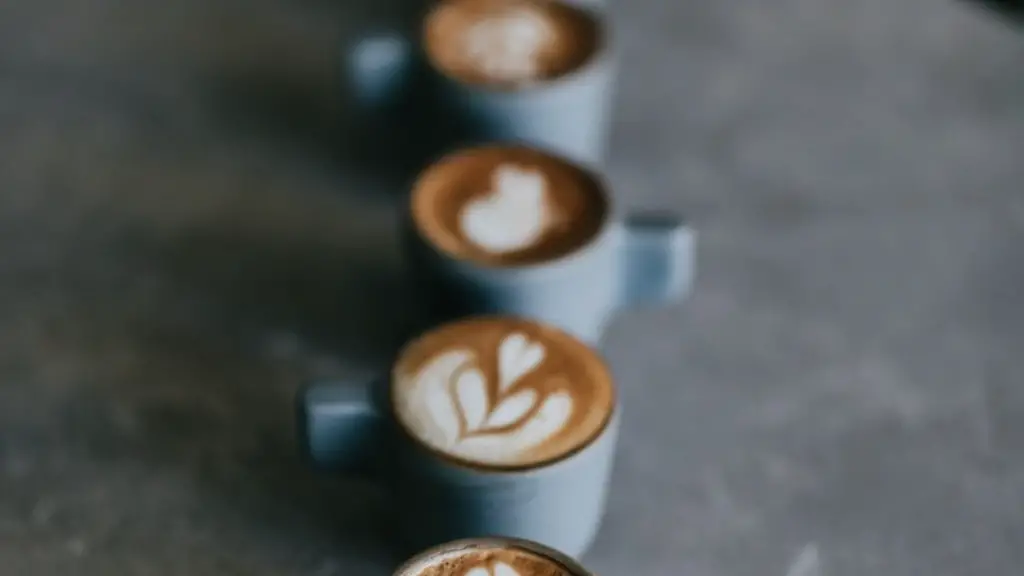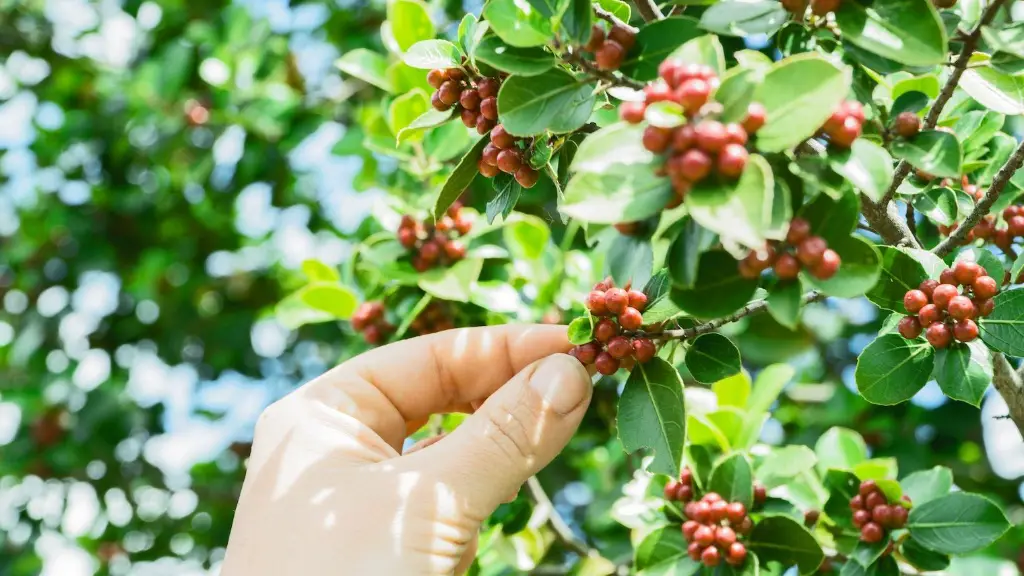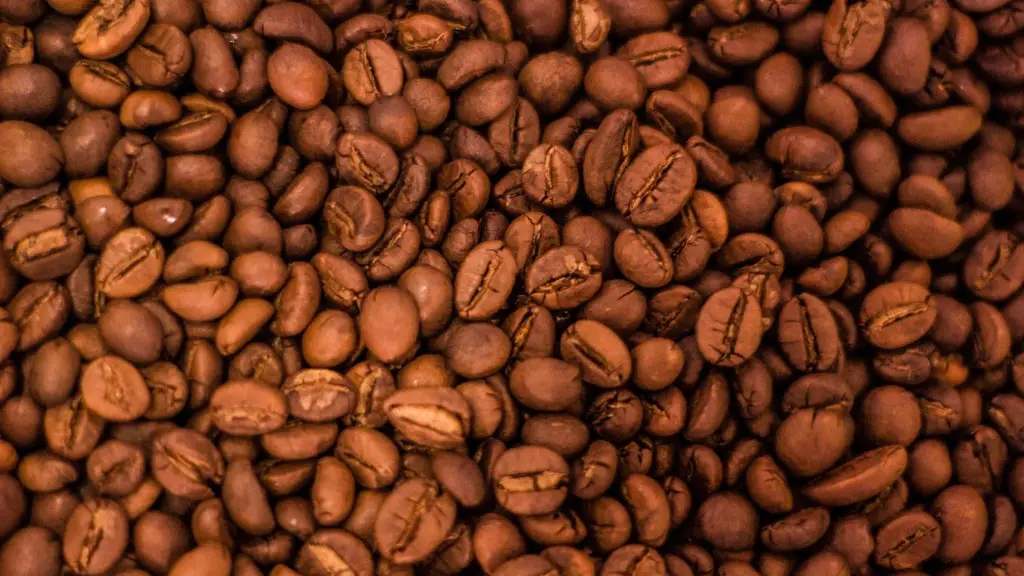During the pandemic, fasting has become a popular trend for maintaining a healthy diet and lifestyle. Fasting is the practice of not consuming food or drinks for a set period of time. It allows the body to rest, digest, and detoxify from the inside. But what about coffee? Is it allowed while fasting?
It depends on a person’s individual lifestyle and goals. According to nutrition experts, coffee can help individuals stay energized and focused while fasting, provided it goes without added sugars, dairy, and other unhealthy ingredients.
For those looking to reap the health benefits of fasting, coffee can offer a few advantages. “Coffee can help curb hunger and cravings while you fast,” says Alexandra Riccardi, a licensed nutritionist and lifestyle coach. She shares that coffee can even help suppress appetite and reduce cravings for sugar and other unhealthy foods.
Coffee typically contains caffeine, a stimulant that can increase metabolism, improve cognitive alertness, and reduce fatigue. But when consumed in large quantities, it can be problematic for those with underlying health conditions such as diabetes, high blood pressure, and heart disease.
For those looking to reap the health benefits of fasting without risking their health, there are a few different options. Black coffee—or coffee without added ingredients—can be a good choice. Moreover, many experts suggest limiting coffee intake while fasting to one cup a day in order to avoid any negative side effects.
Adding other ingredients to coffee during fasting is generally discouraged. Anything that contains calories, such as sugars, creams, and flavorings, can break a “fast.” This means that the individual would no longer be considered as fasting, and would not be able to reap the health benefits of fasting.
It is also important to note that caffeine can interfere with sleep patterns and cause insomnia, so those looking to get the full benefits of fasting should avoid drinking coffee in the late evening.
What Other Alternatives Are There?
For those who are looking to maintain their fasting lifestyle while still enjoying a cup of coffee, some experts suggest adding a teaspoon of honey or a plant-based sweetener to coffee during fasting. This keeps the calorie count low while still allowing individuals to enjoy a hint of sweetness to their favorite beverage.
Another great alternative is to switch to decaffeinated or natural caffeine-free coffee. Not only does this offer the taste of coffee without any of the caffeine buzz, but it is also a great source of antioxidants and other beneficial compounds. Furthermore, it’s low in calories and does not contain any sugars or unhealthy ingredients.
What Are The Tips To Follow?
When it comes to drinking coffee while fasting, it is important to practice moderation and stick to the recommended amounts. Too much caffeine can lead to jitteriness, nausea, and other unpleasant side effects. Additionally, individuals should avoid adding additional ingredients to their coffee during fasting, as these can undo the benefits of the fast.
It is also important to monitor how coffee affects the fast and the overall health. Depending on the individual’s goals and lifestyle, it may be beneficial to eliminate coffee entirely or reduce the amount of caffeine intake while fasting.
In general, individuals should experiment to find a combination of fasting, food, and beverage choices that works best for them. Each person is different, and every lifestyle is different. Therefore, it is important to understand and respect individual differences.
How Does Coffee Affect Intermittent Fasting?
Intermittent fasting is a type of fasting in which individuals alternate between specific eating and fasting periods. It is believed to provide many health benefits, such as weight loss and improved metabolic health.
Coffee can be beneficial to individuals who are participating in this type of fasting, as it can help to curb hunger and reduce fatigue. However, it’s important to note that consuming any beverage containing caffeine can interrupt the fasting cycle, so it’s important to pay attention to the amounts being consumed and the timing of the fasting periods. Additionally, individuals should avoid additives such as sweeteners and dairy.
What Are The Benefits And Risks?
Drinking coffee during a fast offers some potential health benefits, including increased energy, improved alertness, and reduced hunger. There are, however, some potential risks that individuals should be aware of. These include potential insomnia, nausea, high blood pressure, anxiety, and other side effects. Before drinking coffee while fasting, individuals are encouraged to consult their physician or nutritionist in order to assess any potential risks and ensure their overall safety.
In general, coffee can be a great way to curb hunger and stay energized while fasting. However, it is important to practice moderation and stick torecommendations put forth by nutritionists and physicians. Additionally, individuals should pay attention to how coffee affects the fast and their overall health, and make adjustments as necessary.
What To Drink During Intermittent Fasting?
Intermittent fasting may require avoiding food and drinks containing calories, such as coffee with added sugars or cream. However, there are some drinks that are safe to consume while in this type of fasting, such as water, herbal teas, and decaf coffee.
In order to maximize the health benefits of intermittent fasting, individuals should focus on staying hydrated. Water is a great choice for hydration, as it contains no calories and does not interrupt the fasting cycle. Additionally, herbal teas are a great option for those who want a little bit of flavor without the calories or caffeine. Decaffeinated coffee is also a good choice for those who want to enjoy the taste of coffee without any of the negative side effects of caffeine.
It is important to remember that every individual is different, and it is important to monitor how food and drinks affect the body while in an intermittent fasting state. If a particular food or beverage is causing negative side effects, it is best to eliminate or reduce the intake.
Is Coffee Safe During Intermittent Fasting?
In regards to safety, it is best to err on the side of caution and avoid caffeine during intermittent fasting. Caffeine can have unwanted side effects, such as insomnia, nausea, and high blood pressure. If a person is looking to reap the health benefits of fasting but still enjoy coffee, it is best to opt for decaffeinated or natural caffeine-free coffee during the fasting periods.
Additionally, individuals should pay close attention to how coffee and other drinks affect the body during the fasting periods. If a person is experiencing negative side effects, it is important to reduce or uninstall the beverage from their routine.
What Is The Final Verdict?
At the end of the day, each person’s lifestyle and goals are different. Some may find that having a cup of coffee during a fasting period is beneficial, while others may find that it disrupts the process. It is important to pay attention to how the individual body reacts to coffee and make adjustments as necessary. Additionally, it is important to consult with an expert to determine the best course of action.
Most importantly, individuals should experiment and find a combination of fasting, food, and beverage choices that works best for them. It is important to remember that each lifestyle is unique and should be respected. By listening to the body and paying attention to the effects of food and drinks, individuals can maximize their health and stay on track with their fasting goals.





